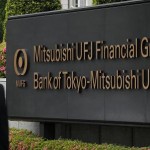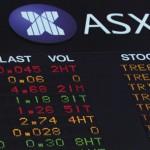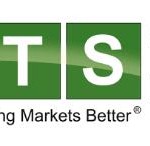ASX still committed to blockchain after CEO’s departure

ASX has reaffirmed its commitment to developing a Bitcoin-like settlement system that could replace its lucrative post-trade services business after the man who championed the technology, Elmer Funke Kupper, quit as chief executive this week.
ASX executive chairman Rick Holliday-Smith, who has assumed Mr Funke Kupper’s responsibilities, this week moved to hose down suggestions that the ASX could reconsider its interest in developing blockchain or distributed ledger technology under a new chief executive.
“The ASX Board is committed to the development of distributed ledger technology. It offers a unique opportunity for Australia to be a leader in the assessment of innovative market solutions,” Mr Holliday-Smith said.
The comments followed a report in The Australian in which Morningstar analyst Nathan Zaia said he considered the future of the blockchain investment the only significant risk in the transition to a new chief executive.
“A new chief executive might take the view that we will wait and see if someone comes up with something and whether it is worthwhile, but in the meantime continue with what they are doing,’’ Mr Zaia told this newspaper.
The report was seen in some quarters as indicating the ASX may not be committed to developing the technology in the wake of Mr Funke Kupper’s surprise decision to resign over corruption allegations dating to his time as chief executive of then casino and wagering giant Tabcorp in 2009. But Mr Holliday-Smith and Blythe Masters, the chief executive of the New York-based company developing block chain technology, Digital Asset Holdings — in which ASX has invested $14.9 million for a 5 per cent stake — scotched those fears.
“Consistent with the comment from chairman Holliday-Smith, the ASX project is proceeding as planned,’’ Ms Masters told Bloomberg. “The early results are very promising.’’
ASX made the investment in the hope of participating in a technology that could have major implications for its monopoly securities and derivatives clearing and settlement business.
Blockchain or distributed ledger technology is expected to allow real time settlement and tracking of financial transactions by all parties involved, collapsing a two-day delay between the initiation and closing of a deal.
The ASX earns $55 million a year in revenue from its role as the clearing house for equity trades, causing some to question its enthusiasm for a technology that undermines its clearing house.
Broker Morgan Stanley said the risk to that revenue was “likely more than offset’’ by opportunities to expand its suite of issuer and investor services by, for example, building the systems for companies to trace ownership of shares and administer their own corporate actions, such as making dividend payments.
The technology would also have implications for others in an estimated transaction chain worth $4-5 billion.
Source: The Australian





























